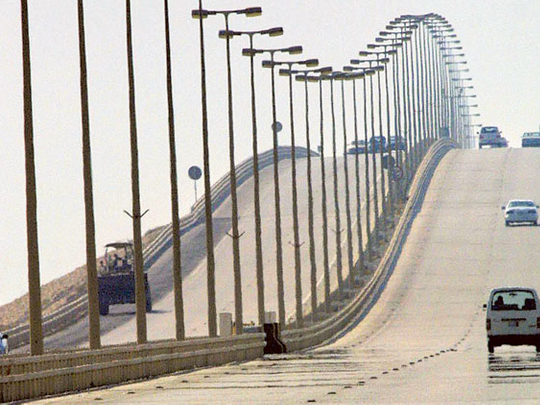
Manama: King Fahad Causeway, the only terrestrial link between Bahrain and Saudi Arabia, broke a new record on Thursday when more than 94,000 people used it in one day.
Highlighting the record on his Twitter account, the assistant undersecretary for exits, research and follow up said that 94,305 people used the 25-kilometre causeway link in both ways and set the highest single day figure since it was officially opened on November 26, 1986.
The causeway was massively used in January by football fans from neighbouring Gulf Cooperation Council (GCC) countries who attended the matches of the Gulf Cup.
The six GCC countries, Yemen and Iraq fielded their national teams in the popular tournament, prompting thousands of fans to drive long distances to watch the matches.
Fans from the UAE flooded the causeway with their cars and motorcycles when their team played in the finals against Iraq and eventually won the cup.
The causeway is used daily by hundreds of commuters from Saudi Arabia and Bahrain who study or work across the border shores.
Students attending private schools and universities make up a large number of the commuters who also include government and private sector employees.
However, the larger crowds could be seen over the weekend when Saudis and foreigners living in Saudi Arabia drove over to Bahrain, often to visit relatives, watch the latest movies and spend time in shopping malls.
Bahrainis drive into Saudi Arabia mainly to have access to a larger market, do their shopping or visit relatives. They also use the causeway to travel by land to Qatar, Kuwait, and the UAE.
The causeway is also regularly used by thousands of Bahrainis and Bahrain-based foreigners to go to Makkah to perform Umrah.
Large trucks have been regularly using the terrestrial link to transport goods from and to the Gulf countries and beyond.
A slowdown in the procedures to clear papers has recently resulted in long queues of trucks waiting to cross the borders, raising calls among the business communities in both countries to address the situation promptly.











